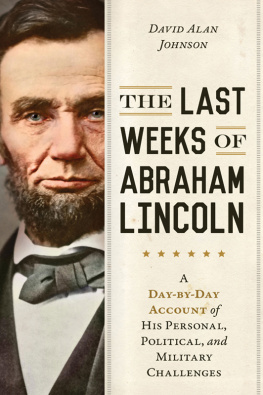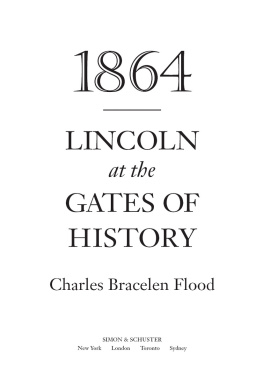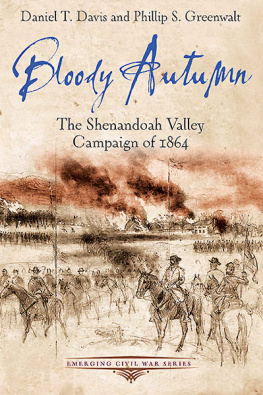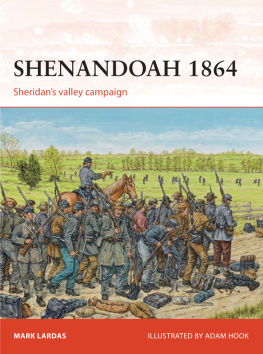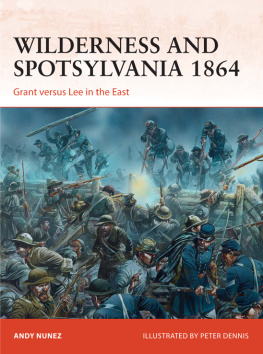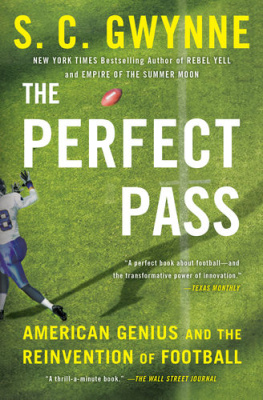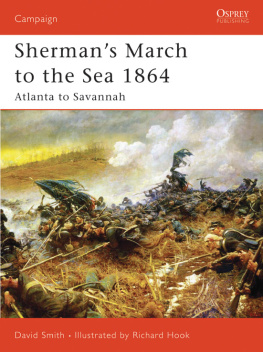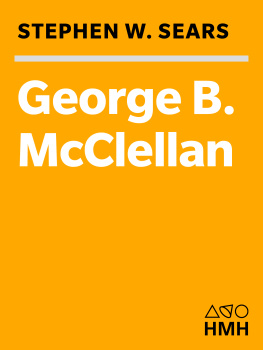T his is my first book on the subject of the American Civil War. Most of my previous books have been about the Second World War, and were largely based upon eyewitness interviewsconversations with people who had lived through the London Blitz, or had lived on Long Island, New York, at the time of the landing of the German saboteurs. Obviously, it was not possible to interview anyone who remembered the 1864 election.
Instead, I had to rely upon a good many historians, librarians, and other helpful people to assist me in my gathering of information for Decided on the Battlefield. I would like to single out a few individuals who went out of their way to be helpful.
First of all, I would like to acknowledge both the assistance and the encouragement of Mr. James Cornelius, curator of the Abraham Lincoln Presidential Library and Museum in Springfield, Illinois. In addition to answering several of my questions, Mr. Cornelius also encouraged me to undertake this project in the first place. He told me that a book on the election of 1864 was a good idea, needing exploration, and he was right.
I would also like to thank Mary Shepherd of the Abraham Lincoln Association, also of Springfield, for putting me in touch with Mr. Cornelius, which actually got the whole project rolling.
Kimber Fender, of the Public Library of Cincinnati and Hamilton County, gave me the story of the meeting of Ulysses S. Grant and William T. Sherman at Cincinnatis Burnet House in March 1864. The meeting took place in the hotels Parlor A, which, according to Ms. Fender, turned the room into a kind of shrine. Parlor A became the meeting place for the Sons of Union Veterans for many years, until the hotel was pulled down in the 1920s. Details like this bring a book to life. Many thanks to Kim Fender for her help.
And, once again, I would like to express many thanks to the staff of the Union Township Public Library in New Jersey. They rode to my rescue many times, like General Phil Sheridan at Cedar Creek. Thank you to Eileen, Susan, Carole, Laura, and All Hands for all your help.
I am certain that I left out a number of people who have helped me, for which I offer many sincere apologies. It is not that I am ungrateful, just absentminded.
David Alan Johnson
T o the desk clerk at the Burnet House, Cincinnatis leading hotel, the two officers did not have anything in common except the blue uniforms they both wore. One of the men was striking in appearancetall, with red hair and a short beard. He would have stood out anywhere. The other one also had a beard, but was short and stocky. There was nothing impressive about the shorter man at all; he could have disappeared into any crowd without ever being given a second look. The tall, redheaded man was talkative and highly strung, chattering away almost continuously in nervous, energetic bursts. The shorter man did not say very muchlater on, people would say that he could be silent in several languagesand was much calmer and more reserved than his animated friend.
The short, stumpy officer was Ulysses S. Grant, the Hero of Vicksburg, Shiloh, and Chattanooga, who had been given his commission as lieutenant general by President Abraham Lincoln less than two weeks before. His talkative red-haired friend was Major General William Tecumseh Sherman, who had known General Grant since their days at West Point and had been with him at Shiloh and Vicksburg. The differences in their manner and appearance never had any effect on how well they got along with each other. But the relationship between the two was about to take a new turn. Their meeting in Cincinnati would change the lives of both men, and would also alter the course of the Civil War and forever change the future of the United States.
Grant and Sherman had come to the Burnet House to discuss strategyhow the war would be waged from then on. It was March 1864, a month or two before the roads would be dry enough to let the spring campaigns begin. The North had won major victories at Gettysburg, Pennsylvania, and Vicksburg, Mississippi, but that had been eight months earlier and the Confederacy was far from finished. General Robert E. Lees Army of Northern Virginia and General Joseph E. Johnstons Army of Tennessee were still in the field, and were the main topic of discussion between the two generals.
The war had been going on for nearly three years. People in the North were becoming tired of the endless fighting and everything about it. Because of the tactics and weaponry employed by both sides, the number of men being killed and wounded in every battle was enormousat Fredericksburg, Virginia, three months before, more than 12,000 Union soldiers had been killed or wounded. War weariness was hardening into opposition against Lincolns war to restore the Union.
There is no record of whether Grant and Sherman discussed the upcoming presidential election in Novemberprobably not, because it was still a long way off and the Democrats would not even name a candidate until summer. Neither of them could have known it, but the outcome of their strategy meeting in that smoke-filled Cincinnati hotel room would alter public opinion concerning the war, as well as public opinion of Abraham Lincoln as a war president. The decisions reached by the two generals, the short and stumpy Grant and the tall and nervous Sherman, would also determine the outcome of the November election, in ways that no one could possibly have guessed.
In their hotel room, Parlor A, Grant and Sherman talked about how they should go about destroying the two Confederate armies. For two days, they spread out their big war maps, discussed Lee and Johnston, thrashed over possible troop movements, and smoked endless cigarsafter two days and dozens of cigars, the air in that room must have been absolutely fetid. Lee was still preventing the Army of the Potomac from capturing Richmond, just as he had been doing since the beginning of the war, and Johnston was in Georgia reorganizing his forces. Both armies would have to beovercome and shattered before the war could be won and the rebellion could be brought to an end. Both Grant and Sherman were well aware that defeating two armies and ending the rebellion would require a great deal of hard planning, and even harder fighting.
Ulysses S. Grant and William Tecumseh Sherman had both graduated from West Point; Grant in 1843 and Sherman in 1840. They had not been close friendsGrant was a new plebe when Sherman was in his final year at the academybut they remembered each other. They met again in St. Louis before the war, after both men had left the army and had been civilians for several years. Both of them were having a very hard time earning a livingat one point, Grant was reduced to selling firewood in the street. One of their topics of conversation was how a West Point education left them unsuited for any sort of career outside the army. But when the war began in 1861, West Point graduates were very much in demand by the War Department. Grant and Sherman began their second military careers, and their hard times were over forever.
The two men understood each other, and they understood what had to be done. They also liked each other, and had stood by one another during troubled times. In February 1862, during Grants attack on Fort Henry, Tennessee, Sherman had been given the job of sending boatloads of supplies and replacement troops to reinforce Grants assault. When nearby Fort Donelson was taken later in the same month, along with its stash of weapons and ammunition, Sherman asked if there was anything else he could do for Grant. At the time, Sherman was senior to Grant; this total lack of ego on Shermans part was much appreciated, and would be well remembered. More than 20 years afterward, Grant recalled that every boat that came up with supplies or reinforcements brought a note of encouragement from Sherman... saying that if he could be of service at the front I might send for him and he would waive rank.



